South Korea’s Democratic Crisis: Yoon Suk-yeol and the Struggle Against Far-Right Resurgence
South Korea is grappling with one of its most turbulent political crises since its transition to democracy in the 1980s. On January 15, Yoon Suk-yeol, the impeached far-right president, was arrested for plotting an insurrection through an attempt to impose martial law. This arrest follows weeks of political upheaval and raises questions about the fragility of South Korea’s democratic institutions, the role of the far right, and the future of the nation’s political landscape.
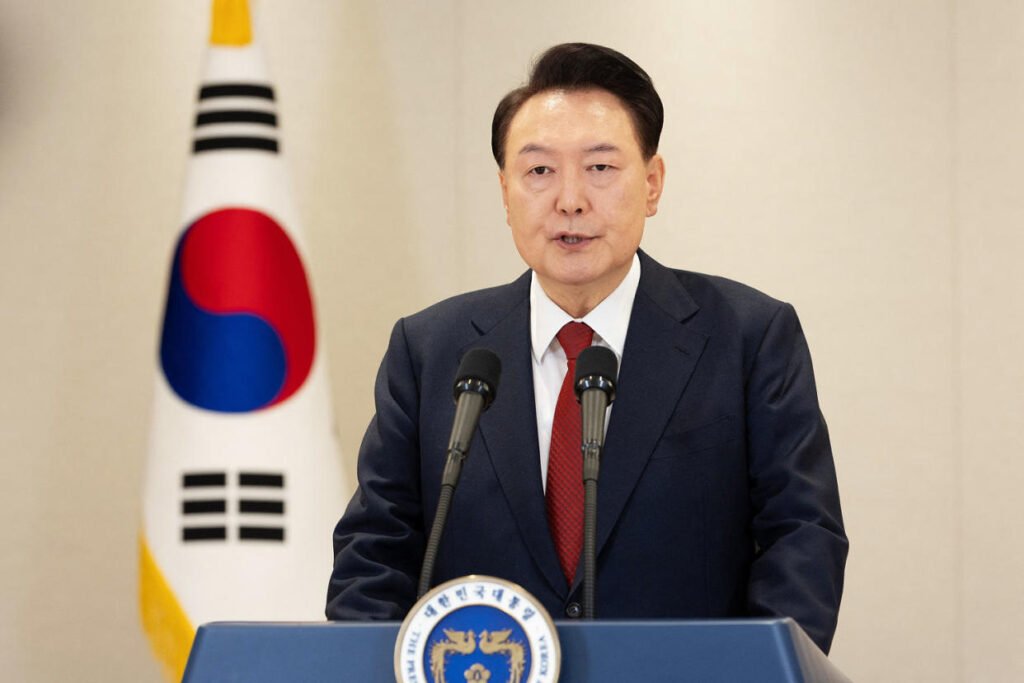
The Arrest and Yoon’s Defiance
Yoon’s arrest was the culmination of dramatic events, including a failed attempt to capture him earlier in January. In a predawn raid involving over 1,200 elite detectives, law enforcement finally detained Yoon at his residence in southern Seoul. Despite the gravity of the charges—insurrection, a crime punishable by life imprisonment or death—Yoon remained defiant, using his platform to galvanize supporters and undermine the opposition.
Public opinion on Yoon’s impeachment is deeply polarized. A Gallup Korea poll revealed that while 64% of respondents supported his removal from office, this figure marked an 11% decline from earlier surveys. Meanwhile, Yoon’s People Power Party (PPP) has experienced a resurgence, narrowing its gap with the opposition Democratic Party of Korea (DPK). Rising public fatigue amid economic hardship and political instability has provided fertile ground for Yoon’s narrative of victimization and defiance.
The Coup Plot: A Threat to Democracy
The coup plan, detailed in an 83-page indictment, underscores the audacity of Yoon’s attempt to dismantle South Korea’s democratic order. In August 2024, Yoon promoted his longtime ally, Kim Yong-hyun, to defense minister, setting the stage for a plot involving 1,500 elite soldiers.
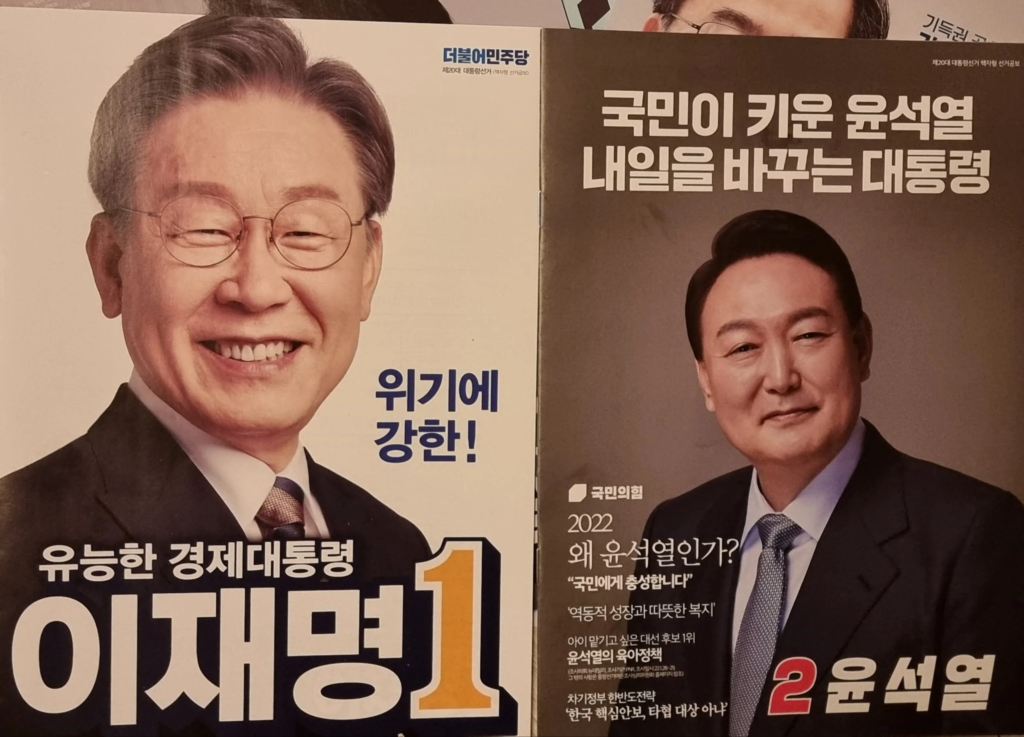
The plan included dissolving the National Assembly, creating a puppet legislature, and employing military force to suppress dissent. When thousands of citizens mobilized to block soldiers from occupying the Assembly, the coup quickly unraveled.
Yoon’s efforts to justify his actions leaned heavily on far-right conspiracy theories, including unsubstantiated claims of electoral fraud involving North Korea and China. These baseless allegations were used to justify plans to detain election officials and coerce confessions through torture—reminiscent of authoritarian practices South Korea sought to leave behind.
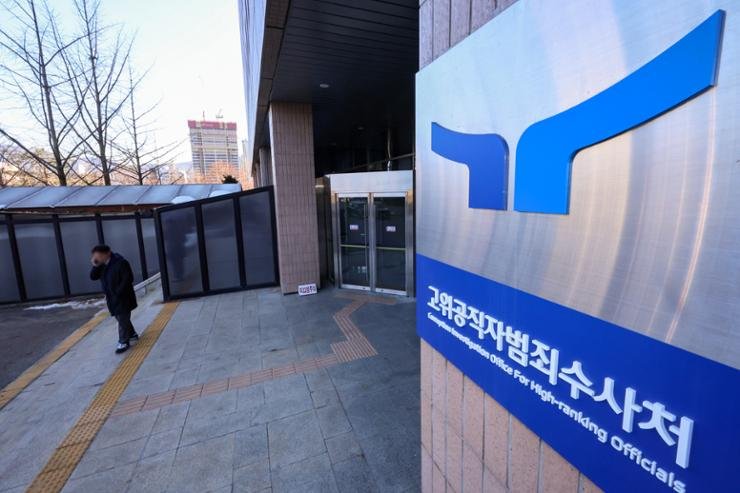
Institutional Fragility and the Role of the CIO
Yoon’s ability to evade arrest for weeks highlights vulnerabilities within South Korea’s institutions. The Corruption Investigation Office for High-ranking Officials (CIO), formed to counter prosecutorial overreach, found itself ill-equipped to handle a case of this magnitude. The CIO’s limited mandate forced it to rely on the police and prosecution services—entities historically aligned with Yoon’s political base—exposing institutional weaknesses that the former president sought to exploit.
The ongoing power vacuum has placed immense pressure on acting President Choi Sang-mok. Choi’s dual roles as acting prime minister and president underscore the precarious state of South Korea’s governance, with the Constitutional Court yet to rule on Yoon’s impeachment. The DPK’s push for a special counsel reflects a recognition that more robust measures are needed to address the crisis and safeguard democratic processes.
The Rise of the Far Right
Yoon’s presidency and attempted coup are symptomatic of a broader far-right resurgence in South Korea. Drawing inspiration from global movements like Donald Trump’s MAGA campaign, the Korean far right has leveraged social media and grassroots organizing to amplify its influence. Far-right vigilante groups have re-emerged, evoking memories of the authoritarian era, while conspiracy theories have gained traction among disillusioned young men.
This demographic, critical to Yoon’s electoral victory in 2022, has rallied around grievances related to perceived gender and economic inequities. Yoon’s misogynistic rhetoric and promises to dismantle affirmative action policies resonated with young men frustrated by South Korea’s hyper-competitive labor market. However, these grievances obscure deeper systemic issues rooted in the country’s ruthless form of capitalism, which pits workers against one another and exacerbates socioeconomic divides.
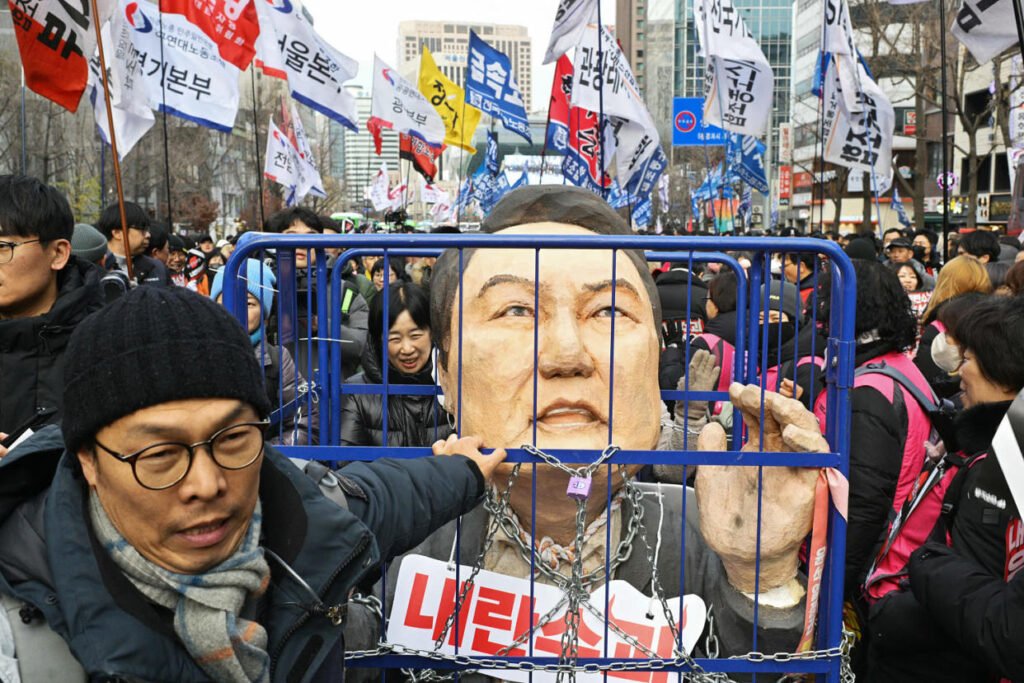
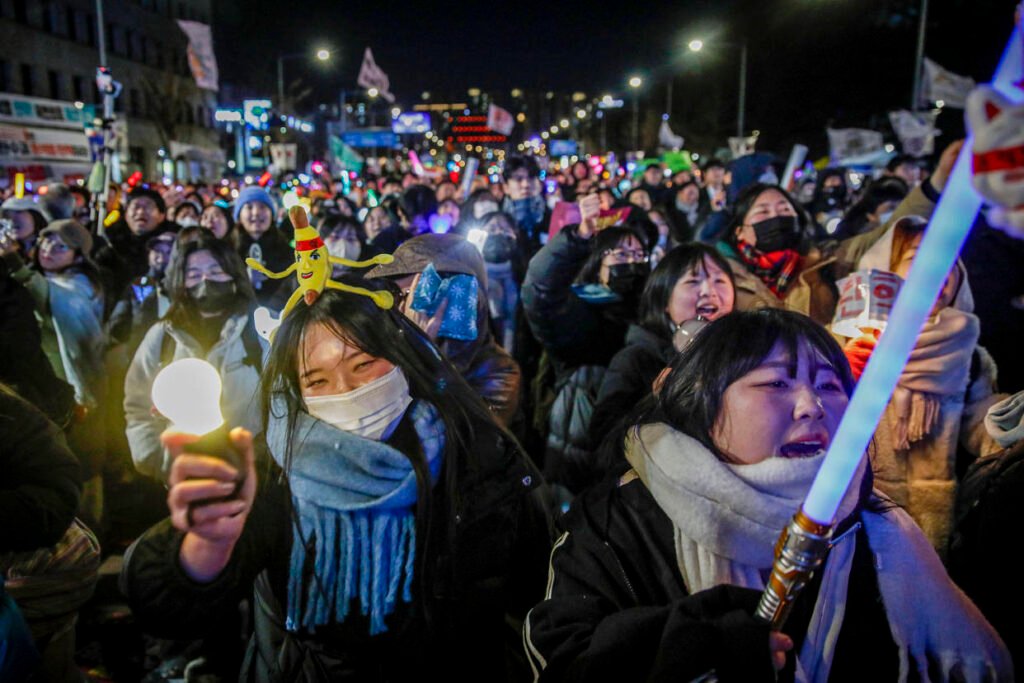
International Dynamics and the Role of the U.S.
The crisis has drawn international attention, with the United States and China closely monitoring developments. The U.S., historically aligned with South Korea’s conservative forces, has expressed concerns about the political instability, particularly as it relates to strategic alliances in the region. Yoon’s hardline stance against China had aligned with U.S. interests, making his downfall a potential liability for Washington’s regional strategy.
Conversely, China has sought to exploit the situation to weaken South Korea’s pro-U.S. alignment. Beijing’s overtures to opposition leader Lee Jae-myung reflect its desire to shift South Korea’s foreign policy. However, Lee’s lack of decisive leadership has limited the DPK’s ability to capitalize on the crisis, leaving the door open for far-right narratives to dominate public discourse.
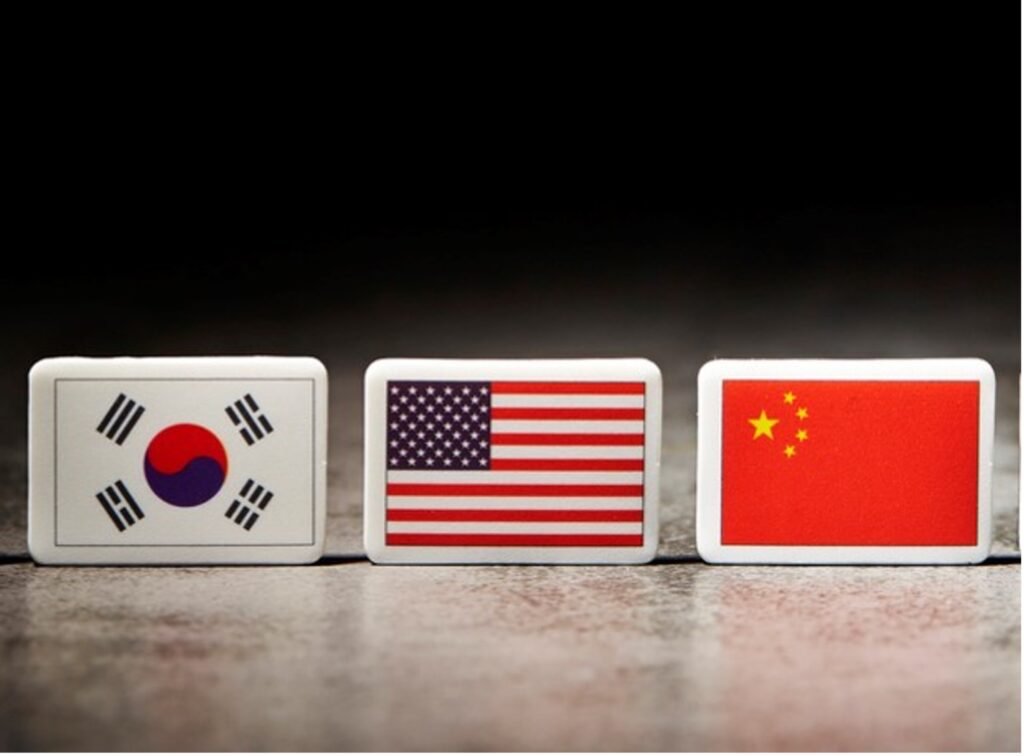
Labor and the Left
The crisis has also reignited interest in organized labor as a force for democratic renewal. Unlike the impeachment protests of 2016–2017, when labor leaders were sidelined, unions are now playing a more prominent role. The Korea Metal Workers’ Union, for example, has demonstrated solidarity with marginalized groups, fostering alliances that could broaden the progressive movement’s appeal.
However, the Left faces significant challenges in building a cohesive platform that addresses gender, class, and economic issues. The DPK’s credibility has been undermined by scandals and a perceived failure to deliver meaningful reforms. To counter the far-right resurgence, the Left must articulate a bold vision that resonates with a diverse electorate while confronting the systemic inequalities that fuel discontent.
South Korea stands at a crossroads, with its democratic institutions facing a critical test. Yoon Suk-yeol’s arrest marks the culmination of a crisis that has exposed deep divisions and vulnerabilities within the nation’s political system. While his immediate threat may have been neutralized, the far-right forces he represents remain a potent challenge to South Korea’s democratic aspirations.
The path forward requires more than addressing the immediate fallout of Yoon’s actions. It demands a comprehensive effort to rebuild trust in democratic institutions, strengthen protections against authoritarianism, and foster a political culture that prioritizes equity and inclusion. Only by addressing these systemic issues can South Korea safeguard its democracy and chart a path toward a more just and stable future.

